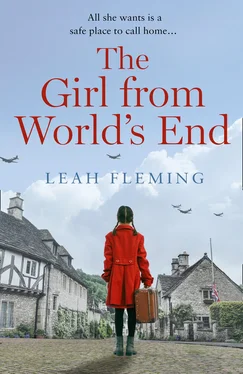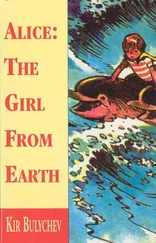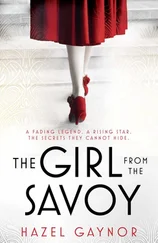If only he could have made Ellen, their daughter, see sense when she fell for that Scotch navvy Gilchrist. They both felt it was a grave mistake, but the lass burned her bridges good and proper, and paid the price. They’d not even gone to her funeral for fear of catching the flu and passing it on up the dale.
That act of cowardice had never sat easy on her; cost many a sleepless night. To abandon their own daughter was not something either of them was proud of but Ellie’d made her bed and all that. It was her choice to go rushing up to Gretna Green making a fool of them all, having a bairn not six months afterwards. It was not easy to stomach having a thankless child.
Adeline’d done her bit for the kiddies but had never seen the last one nor wanted to, but her father being a Catholic and fond of drink was a worry. Sometimes she lay in bed and wondered if the girl had Ellie’s fair hair or the blue Yewell eyes renowned in the district for the distinctive dark ring round the iris, making them sparkle like sapphires. It was those blue globes that had drawn her to Joe’s side. When he gazed into her face she was lost.
‘Get a grip o’ thyself,’ she sighed at such memories. There were geese to be plucked and sent down to market and the butcher. She hoped the prices held up for Christmas as it had been a tough year for farmers and workers, what with the General Strike and lay-offs.
She must parcel up a few bits for the Gilchrist lass down in Scarperton. She wasn’t sure whether Miriam was six or seven, but Mildred at the haberdashers always set aside a few items that hadn’t sold for her to parcel up. Time flew past so quickly. Where had the years gone?
There’d be many cutting corners this Christmas, making do with a cheap joint or scraps down in the market town. Joe would have to temper his chapel sermons; a little less hellfire and a little more goodwill to all men, she hoped. He could get so carried away when he got in that pulpit.
‘Remember those good women have scrimped and saved to put a Sunday meal on the table for their kin. Don’t you go spoiling their Yorkshire puddings with your rantings. Have a bit of Christian charity.’
‘You’re a hard woman, Adey! Come with me and give me a signal.’
‘Never,’ she would laugh. ‘I like my pew comfortable and quiet, with beautiful words and no bone shaking. The vicar gives us ten minutes’ pulpit talk. That’s enough for me.’
Joe would be out on the moors now, foddering the sheep, reciting the good bits of his sermon to himself, rendering choruses from Messiah and making sure none of his flock strayed too far, for the weather looked set for a blow-in of snow. He was a good shepherd to his flock through and through. He was for sheep and she was for cows so together they made a good team.
Cragside Farm sat on the slope of the fell, tucked into the hillside with windowpanes looking south and west to get the best of the sun to warm the stone a treat. Once it was thronged with children, dogs and yard boys, but now it was quieter as their son Tom farmed higher out at Scar Head, and his brother, Wesley, was a teacher in Leeds with no interest in farming at all.
This perch was fine while they were fit and strong, and Yewells were long livers, but come the next few years Joe would have to slow down a bit. Things were tough for farmers now and getting tougher, Adey thought as she sat with Carrie plucking the goose feathers into a sack. Nothing must be wasted.
‘There’s a letter come from Keighley,’ Carrie said, shoving the envelope across the table. ‘Who do we know in Keighley? Happen it’s a Christmas card from Paddy and the girl. What’s her name again?’ Carrie was fishing; always curious about the prodigal daughter and her infamous family who never darkened the door.
‘I’ve never had a card from him nor the girl, and she’s called Miriam, after Joe’s mam, as well you know. Little good that’ll do her. I’m surprised she didn’t get Theresa or Maria or some fancy saint’s name.’
Adey stared at the handwriting, curious for a second. The address was written in a neat copperplate hand. It looked official and it was addressed to both of them.
‘Aren’t you going to open it?’ Carrie was at it again, rooting for information, but Adey wasn’t going to give her satisfaction so shoved the letter in her pinny pocket and promptly forgot all about it. That was the trouble with girls who lived in: they got a little too nosy about family affairs. It was none of her business who was writing to them.
‘Now what’s all this about you and George Thursby?’ It was Adey’s turn to go fishing.
‘He’s asked me if I’m going to the Christmas hop in the village hall. What shall I wear?’
‘Clothes would be a start if you don’t want to stir them all up,’ Adey laughed. ‘I’m sure you’ll find something to dazzle him with, but I want you back at midnight and no hanky-panky. It’s a long walk up that hill in the dark. Let him wait for his favours.’
Carrie was blushing, her neck a circle of pink weals. ‘Mrs Yewell, what do you take me for?’ she muttered.
‘As silly a lass as any in the dale, as daft as a brush when it comes to a handsome face and clean shirt, but with a canny eye for a good bargain,’ she replied. ‘You could do worse than one of the Thursbys’ lads. They’re reliable, sturdy and don’t squander their brass. His mother is that careful she’d skin a dog for its fleas.’ Carrie laughed at her joke but her eyes were far away.
‘Mind, I was young once: only the once and look where I landed up: plucking geese, scouring pigs, mucking out and general farm dogsbody stuck on the moors in all weathers. At least George won’t make you tramp with him. It’s a good job in the Post Office, steady and secure in hard times. You could do worse. Take our Tom. When’s he ever going to get himsen wed? He’s over forty and too set in his ways.’
Adey had been hoping her son might have taken a shine to this girl himself but he was tongue-tied when he came into female company, preferring to go his own gait and a game of darts in The Fleece, much to Joe’s dismay. If he didn’t get a move on there’d be no grandsons to take over the tenancy and run the family farm.
He was a good catch. The Yewells were a family of standing in the district. Joe was a lay preacher in the Methodist Circuit. She was a Boothroyd from a farm across the Ribble valley: two of a kind. It didn’t do to marry off the moor, like Ellie. You never knew what you were getting or what sort of stock they came from, its strengths and weak points. Better to be in full knowing of the facts before signing up for life, she thought.
All in all she’d had no regrets. It was a pity you couldn’t choose yer own bairns. They all needed kicking with a different foot: Wesley was all brains with no feel for the land; Tom was all brawn and no business sense; Ellie, well, she was bonny and bright but as stubborn as they came, wanting to go her own road into a town. Bradford was no life for a country-born girl, especially in the war, with rations and shortages and two babies to rear and a husband away fighting.
If she’d come home for a bit of fresh air they wouldn’t have turned her away from their door, but she didn’t because a Yewell was too proud to admit a mistake and they were too proud to go running after her. What a carry-on for good Christian folk!
As the morning wore on Adey was too busy to dwell on what-might-have-been. There was the farm lads’ dinner to line up in the large stone-flagged kitchen, the chicken coop to see to and the ironing of shirts. She wanted to get the oven range hot for a bit of special baking: spice bread and ginger cake to put away for when company came calling. Joe would be wanting his tea before his last rounds, and tomorrow was the slaughterman’s day when Myrtle would give her all. They would be at the butchering until midnight.
Читать дальше












